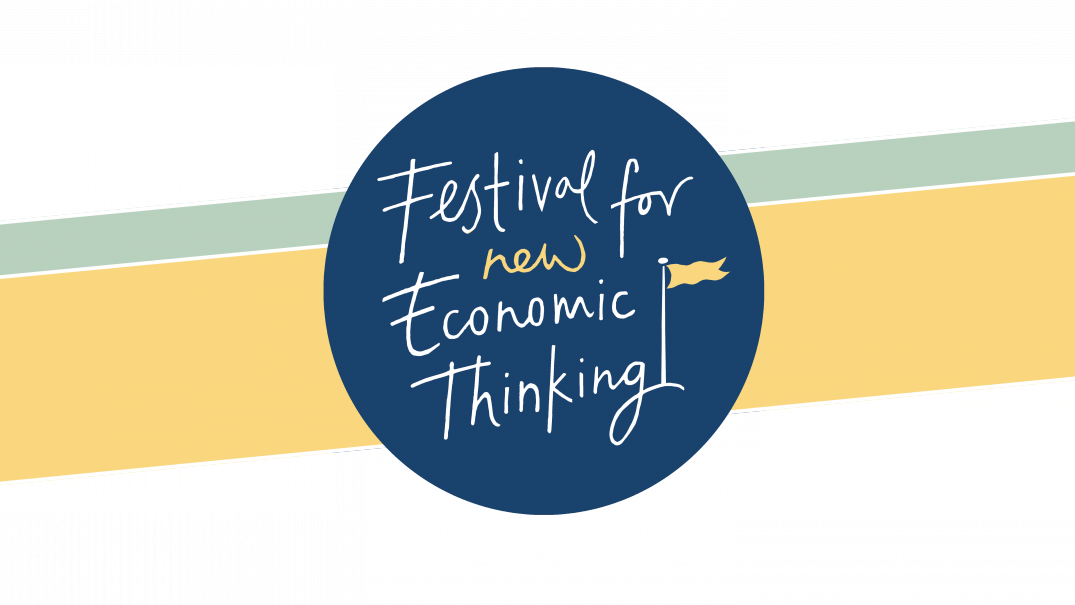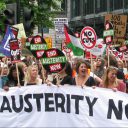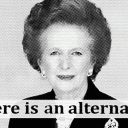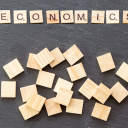New economic thinking is the method: the object is to change the world

The first ever Festival for New Economic Thinking is taking place in Edinburgh on 19-20 Oct 2017. It brings together people and organisations who are committed to advancing economic thought and inspiring change. Here Gustav Theile and Laurie Macfarlane make the case for transforming the way that economics is taught, studied, and practiced.
The crises of our times are economic in nature. From climate change and migration to inequality and the rise of right-wing populism, these are challenges that cannot be separated from the economic system which breeds them. If the crises are economic in nature, then so must be the response. But when the crises are so profound they threaten the survival of humanity there is a need to rethink and, if necessary, reconfigure the very foundations of our economic model.
Where are we now? Policy is focused on generating economic growth, regardless of its source or character. The environment is seen as a peripheral issue, or as something to simply be bought and sold. High inequality is viewed as a price worth paying for a dynamic economy. Where do these doctrines come from, and how are they sustained?
The role of the classroom cannot be overlooked. Economics teaching continues to use models that present the economy as something that is detached from politics, ecology and human interaction. Economics curricula are centred around models where human decisions are portrayed as nothing more than a question of rationality and not complex than the behaviour of atoms. On a macro-level, government regulation is seen as intervention into a natural market order – even though governments and markets are institutions that are designed and shaped by humans. Rarely do discussions of gender, identity, narratives or culture feature, and neither do courses on the history of economic thought, philosophy of the social sciences or qualitative research. Never mind approaches that question the merits of economic growth as a goal, or present the economy as a part of a larger natural ecosystem.
Economic research has problems too, but for the most part it has moved beyond these narrows boundaries. There are papers on narrative and identity economics written by Nobel laureates. There are serious and enriching discussions on the use of models in economics, some wonderful game theorists compare them to fables or stories. Most economists have heard of climate change and don’t think it’s a hoax, and are on average more open to stronger government regulation and redistribution than the general public.
But this is not where economics exercises its influence. Where economics really has power is in the minds of the younger generations. Every new cohort is told that egoism is rational, that markets are natural, that government intervention is unnatural, that environmental sustainability is subject to profit maximisation functions. They are given the impression that the models that economists use are objectively true. Rarely are models presented as the ideas of people, developed in a specific historical setting, bound to time and space. They are usually presented as laws that return truth, as long as you know your algebra. The people with this training end up in powerful positions in businesses, banks, governments and newspapers. Most were never exposed to models that departed from the assumptions of ‘econ 101’.
This discrepancy between research and teaching makes the state of economics education all the more frustrating. Professors know that what they teach is simplistic and, as research shows, destroying the ethical compass of their students. Nonetheless, the reality is that the economic curriculum has not changed much over the past decades.
Economics education is ossified. The same textbooks are used all around the world which makes it very convenient to continue teaching the old, outdated models that are so destructive. They come with ready-made slides and mock exams. The incentives for good teaching are low and aspiring researchers try to spend as little time for teaching as possible. PhD students and post docs often end up teaching the repetitive tutorials that accompany many lectures, which typically involves scribbling the solutions on an overhead projector.
This is why students around the world came together to build the International Students Initiative for Pluralism in Economics (ISIPE) in 2014. They organised two general assemblies where 80 representatives from student groups in over 30 countries came together to discuss internal cooperation – and learned a lot about diplomacy. They conducted a study on economics teaching that compares the curricula in 12 countries worldwide. The most important factor of this initiative was that it gave them confidence. They realised that we were not alone.
Since then, the member groups have organised many conferences and summer schools which have included speakers from institutions such as the OECD, the Bank of England, the World Council of Churches, the Club of Rome and even the Austrian chancellor. The British group Rethinking Economics published a best-selling book ‘The Econocracy’, and more recently released a new handbook on Rethinking Economics. The German network has 30 member groups which organise roughly 300 events every year, and has established its own teaching website www.exploring-economics.org. It aims to break the textbook monopoly and make good economic education as accessible than the bad version is right now. The site recently won a prize for its content. Check it out, and you’ll agree that they should also get one for the design. Who said that knowledge has to be dry?
But still things are getting better. Rethinking Economics, Exploring Economics, the Young Scholars Initiative, The Minskys and the History of Economic Thought website have organised the Festival for New Economic Thinking which is taking place in Edinburgh between 18-20 October. They are bringing together hundreds of students, researchers, activists, and citizens together to think economics anew. 65 organisations, among them many of our student groups, but also institutes, newspapers and openDemocracy, are organising workshops and presenting their work in a carnival spirit.
Change doesn’t come easy. While the quality of arguments is important, the quality of organisation is just as critical. In short: thinking must be organised.
And while we are a diverse group of academically or politically motivated people, there is one thing we all agree on: the idea of academic pluralism. There’s not one theory, not one method that explains everything. Scholars need a variety of theoretical and methodological approaches to understand the world we live in. Theories in the social sciences are intellectual lenses through which the world can be understood. When people exchange goods for money, this could be analysed as rational actors seeking to maximise utility. But there are other possibilities too: they might be striving to comply with gender norms, or acting according to the values they have learned or the culture they grew up in. All of these are economic perspectives, because they deal with economic interaction.
This applies at the macro level too. While economic growth can be seen as something that contributes to lower unemployment, it may also cause harm to the environment that may ultimately outweigh any benefit. There are also political dimensions. Economic growth is fundamental to international relations because it determines the membership of alliances such as the G7 or the G20. One could ask what prevents countries from establishing alliances based on other metrics such as wellbeing, but that’s for a different day.
Changing economic thinking is not easy, and it requires a long-term approach. As the famous saying goes: science progresses one funeral at a time. Well, we better start young!
By working towards more balanced teaching of economics in universities, we hope to develop economic thinking that is less single-minded, and which opens up public discourse and moves beyond the simple dichotomy of market and state. This way, we can work towards a new economic paradigm that addresses the key challenges of the 21st century and enables humanity to thrive.
Margaret Thatcher famously said that “economics are the method: the object is to change the soul”. That was in 1981. But times have changed. In 2017, new economic thinking is the method: the object is to change the world.





